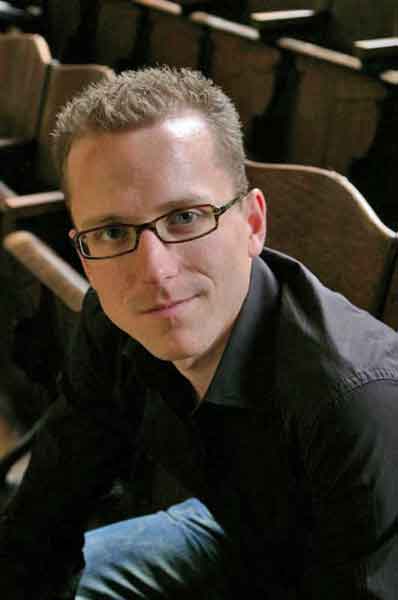Provocative, refreshing, accessible
December 8, 2013
By Wade Roush. This review is from: Graham Gordon Ramsay: Compendium (Audio CD)
Certain composers of modern classical music abandon melody, rhythm, and even tonality in an effort to discomfit; they hope to jar the listener into questioning the nature and meaning of music through brute force. Graham Gordon Ramsay is not one of those composers. He does something that’s perhaps even more difficult. He achieves freshness and conveys emotion by invoking a familiar musical vocabulary, then poking, stretching, and inverting it in delightful and unexpected ways. We’re invited to listen and re-listen to his pieces, finally coming away with a sense that we’ve learned something through a genuine interaction rather than an aural assault.
"Compendium" is a collection of Ramsay’s instrumental music, composed between 1984 and 2012. It’s his second commercial CD; the first, "The Sacred Voice" (2011), showcased his choral music. The works on the current album were recorded between 2006 and 2013, and are performed by top instrumentalists from the music scene around Boston, where Ramsay lives and works. The album came to life as the result of a successful Kickstarter campaign (to which – full disclosure – I was a contributor).
The album is essential listening for anyone who believes that modern classical music ought to remain accessible to the lay public, even while it challenges convention. This is music you remember, and can (almost) whistle. The CD opens with a lovely 2005 work, “Four Autumn Sketches for Flute & Piano,” that immediately displays Ramsay’s inclination toward representational, even visual music – a tendency that’s all the more understandable and convincing given his outstanding work as a professional photographer with a fascination for landscape and portraiture. Even if you weren’t aware that the four movements refer to specific places such as the fountain courtyard at the Boston Public Library, an ancestral farmhouse in Maine, Concord’s famous Walden Pond, and Vermont’s rushing Rock River, you’d feel transported by these alternately playful and mournful melodies.
“Prologue & Two Scenes for Double Bass” is a thoughtful and surprising solo work written in 1984 for Todd Seeber, then Ramsay’s fellow student at Boston University, now a bassist for the Boston Symphony Orchestra. The surprise lies partly in the fact that the work exists at all – the literature for solo double bass is quite thin, and this isn’t a voice we’re used to hearing all by itself. Ramsay’s composition makes full use of the instrument’s range and dark, rich harmonic possibilities, and Seeber is up to the challenge.
The most lyrical piece on the album is “Lullaby” (2005). With its gentle tempo and flowing flute melody, it’s either happy or heartbreaking, depending on the mood you’re in when you listen to it, which, to me, is the hallmark of any lastingly good song.
The arresting, nine-minute “Elegy for Violin & Piano” (2008) is another product of Ramsay’s long immersion in the musical community around Boston music. Its main theme is a seven-tone row that, in its initial statement, feels almost as mathematical as a Bach invention. But the piece is actually deeply personal: the theme comes from from a sonata Ramsay composed in 1985 for violinist and Boston University faculty member John Daverio, who drowned in Boston’s Charles River in 2003. The 2008 piece reworks the 1985 theme from a point of view that’s inevitably older and sadder; it curves and pivots around the main tone sequence in ways that are by turns haunting, insistent, even angry.
The album’s newest, most complex, and most challenging piece (for the pianist, at least) is “Six Preludes for Piano,” written for Andrew Wang and performed here by Scott Nicholas. Preludes IV, V, and VI are my favorites – a diaphanous, legato “Arabesque,” the slow and delicate “In Memoriam” (the second elegy on the album), and the dizzying, difficult, but nimbly executed “Presto.” Careful listeners will hear elements of iconic composers who have been key influences for Ramsay, such as Prokofiev, Poulenc, and Debussy. But in his attention to melody, repetition, variation, and tempo, Ramsay offers an original and uplifting reinterpretation of modern compositional approaches. In collaboration with his alarmingly talented performers, he provokes rather than unsettles, offering an enchanting sequence of views into a musical life lived attentively and honestly.

